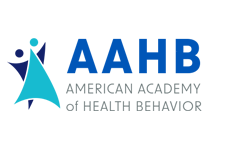Abstract
The purpose of this study was to examine the impact of a pilot insurance company-based intervention guided by a Dynamic Communication Model to increase breast and colorectal cancer screening in Appalachian WV, a medically-underserved population with low screening rates. Our team and key informants developed letters and a website to promote cancer screening, and these were mailed to patients needing screening (breast: n = 232; colorectal: n = 324). After 6 months, a sample of women (n = 22) and men (n = 27) continuing to need screening received telephonic case management counseling. Screening rates were assessed at baseline, 6 months, and 12 months. A final telephone interview was conducted at 12 months with a subset of participants. Key informants (n = 21) provided feedback on the letter/website, resulting in improved readability, organization, and informational content. The letter/website had minimal impact on screening (breast: n = 8; colon: n = 5). The final telephone interview of plan members (n = 12) found they liked the personalized approach and appreciated learning more about cancer, and that you need to “catch it early for good treatment.” All understood the counseling and believed the information was correct. Nearly all intended to get screened. Following counseling, screening numbers increased (total breast: n = 39; total colon: n = 18). Our theoretically-driven, case management counseling intervention was well received and has the potential to increase cancer screening rates, particularly in a rural, medically-underserved populations.
Creative Commons License

This work is licensed under a Creative Commons Attribution-Noncommercial 4.0 License
Recommended Citation
Kelly, Kimberly; Dolly, Brandon; Kennedy, Stephenie; Atkins, Elvonna; Coon, Michelle; King, Kemi; Mbous, Yves; and Rouse, Shelly
(2019)
"Insure Me Cancer Free: An Intervention Utilizing a Dynamic Communication Model,"
Health Behavior Research:
Vol. 2:
No.
1.
https://doi.org/10.4148/2572-1836.1028




